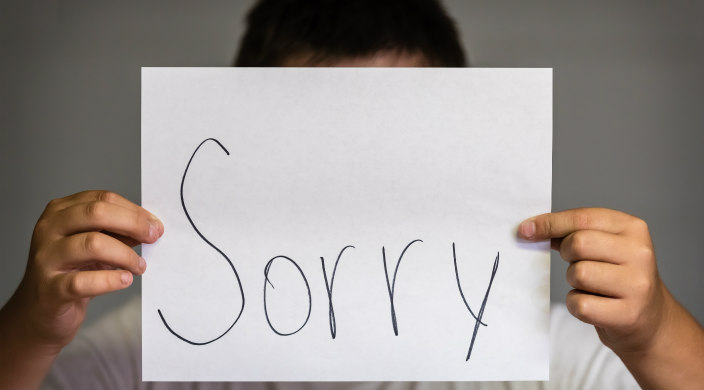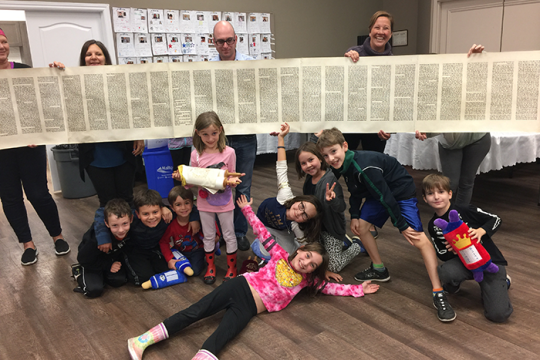
“Say you’re sorry you hit your brother.”
“Say you’re sorry you lied.”
“Say you’re sorry you spit [or yelled or stomped your foot or kicked me].”
We learn to say “I’m sorry” as young children – but sometimes, we’re taught to say it when we’re really not sorry. Our earliest apologies are often intended to make peace with another person, and they don’t really require that “I’m sorry” at all.
As we age, though, these words take on more meaning for us, and they may reflect true regret about our behavior or its impact.
As we approach Yom Kippur, we are again asked to say “I’m sorry.” The question we face is whether these words are heartfelt and meaningful, or if we say them simply to check off a requirement. Do we say “I’m sorry” like a small child, or are our regrets more mature, more introspective?
And what makes for a good apology, anyway? Any form of apology is an act of connection, but only a mature apology is also an act of contrition. At its core, then, true apologies must stem from a deep concern for the other person. Think about it: If I apologize to get you off my case, then my concern is for myself, but if I apologize because you really matter to me – and because I want to do and be better – then my apology is more meaningful to both of us. I’ve taken on a task – to improve the way I engage with another – that I strive to achieve, and you receive a gift of importance and hope for a deeper, more caring relationship.
What do you want when you receive an apology? Sometimes it’s simply an acknowledgement of your own pain – “I’m sorry you’re hurt” – and sometimes it’s a regretful admission that someone has caused or added to your pain. These latter apologies only truly count if the apologizer works to change their behavior – and that work is undertaken because the relationship we have matters.
I find that my regrets are often repeated from year to year: I wish I were more patient. More thoughtful. I wish I stood up for myself more. Still, a true apology, whether it’s between me and you, me and me, or me and God, has to come with a commitment to work to change myself – not all at once, but all the time, slowly and intentionally.
Intimate relationships are ones in which we forgive each other for being flawed and human. As much as (and the entire the High Holiday season, in fact) tells us that God can forgive us (much as a parent forgives a child), ultimately, it is up to us to forgive each other’s imperfections and remember that love binds. “I’m sorry” can simply be a way to say, “I love you.”



